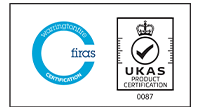Water Treatment Companies – Top Five Things to Consider
Supply chain management has never been easy. And to attempt to over-simplify the process of choosing between water treatment companies in 5 steps is not my intention here.
This post is to share my own 20 years’ experience across diverse industries, taking best practice and hopefully allowing the procurer to ask some very vital questions.
As always, feedback is welcome, and there is room for multiple service suppliers in this industry – sound advice and best practice will continue to drive standards in the right direction.
1 – How straightforward is the Selection Process?
Buying is easy – let’s take this myth on first. The seller, or vendor, knows or should know. Writing a procurement document or request for quotation is not easy – and even a well-written document is still likely to encourage the seller to give you what they have got (and not what you have asked for).
Industrial water treatment service is not a commodity, and to buy on price can bring huge risk. Best value for the lowest risk and/or best return on investment requires a strong working partnership between buyer and supplier.
Key question – Why do you believe your organisation should be our Trusted Advisor?
2 – All-in-one or Specialised Water Treatment Companies?
The ‘one-stop-shop’ has not worked for such a long time now – all this has done has brought layers of sub-contracting, dilution of accountability, and loss of the intended benefit of time-saving/lower management costs.
Water treatment is a specialist industry with highly trained, educated, and time served professional chemists, engineers and scientists.
Key questions – Who will be managing my business from your organisation and can I meet them/see their credentials ahead of the decision being made?
3 – Size and Structure of the Supplier
I have worked for both large and smaller organisations – the answer here is… it depends (very much on answers to questions 1 and 2). Organisational capability is essential – it must be both large enough to cope with requirements and small enough to care (while being cost effective).
Another critical factor is the structure of the organisation. The structure is essential as it impacts not just the flow of work but how responsive the organisation will be when we need it to be.
Key questions – What is your support structure including how/where you procure products and resource?
4 – The Stability of the Water Treatment Companies
There is no doubt that the commercial water treatment industry has had its fair share of mergers, acquisitions, sell-off etc. Having worked for organisations that have parent holding companies that buy/sell to make profit versus a business that is a true specialist .. I can say when board members understand the business they are in, better decisions are made for both the short term and the long term.
Changes, such as new management and ongoing negative financial status, can have an adverse effect on the delivery of effective water treatment solutions. Another key area to consider is the suppliers’ employee engagement programmes? Why? Because the organisation may help secure the contract, but their employees execute it – and experts who are dedicated and motivated will give the best return.
Key questions – Is your company for sale, or have you been recently sold? If yes, why?
5 – The Long Term
Having thoroughly researched and made your decision should give you the confidence that your Trusted Advisor is for the long term. It is important to have regular review meetings to address any changes in your organisational needs and to evaluate the set expectations against actual service delivery.
As long term goes, your supplier should show evidence of investment in innovation to help keep themselves and your organisation ahead of the competition.
Key questions – What innovation have you recently introduced, what new products are under development?

Written by Mark Hannan.
Mark has 25 years’ experience in the water
treatment industry. He has worked as
Regional Manager at Hydro-X for 3 years.
Mark manages the South of England for Hydro-
X Water where we have Engineering and
Technical presence that covers the whole of the
South East, East Anglia and the South West.
Connect with Mark on Linkedin.














